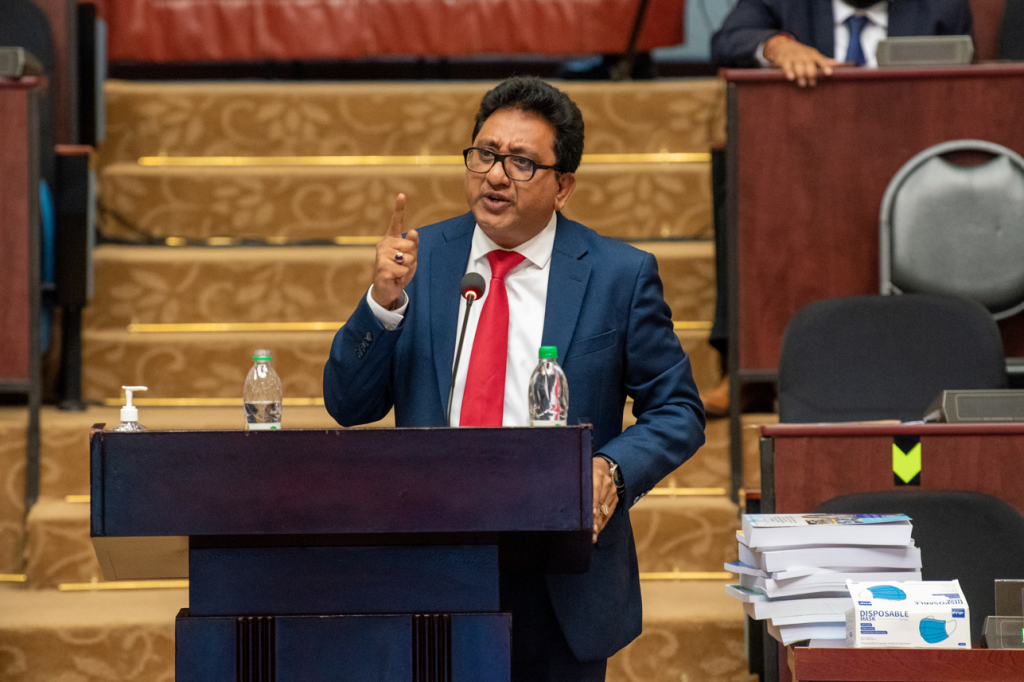Police 72-hour detention to be regulated with new ‘Bail Bill’
By Kurt Campbell
New proposed legislation styled as the ‘Bail Bill’ has been finalised and will be tabled in the National Assembly soon.
It will, among other things, regulate the existing constitutional coverage offered to police investigators which allows them to detain a person for up to 72 hours prior to releasing that person on bail or taking them before a Magistrate.
Attorney General Anil Nandlall, SC, has explained that the Bill proposes that once an offence does not carry a custodial sentence, the accused person must be offered their pre-trial liberty immediately at the police station.
But should the offence be one that requires that the accused person be placed in the lock-up, the cap on the police’s discretion to detain is only 24 hours (one day) before they make an appearance before a Magistrate or released on bail.
“The police may remand you, and if they do, then within 24 hours, you are to be taken [before] a Magistrate. No longer will they be allowed to detain you for up to 72 hours,” Nandlall said during his latest ‘Issues in the News’ commentary on his Facebook page.
“There are investigations that can conclude in five hours but because we have this constitutional coverage, they hold you for 72 hours. This must not happen under the new law,” the Attorney General noted.

The new Bill will have to be debated and passed at the Parliamentary level and then approved by the President before these new conditions are imposed but Nandlall said it is to ensure the police “act with alacrity and expediency.”
“This approach of throwing people in the lock-up and then going your merry way will not be tolerated,” he further stated.
Nandlal described the long-awaited pieces of legislation as very comprehensive and important and said it seeks to rectify the inconsistencies in the grant and refusal of bail both at police stations and by the Court.
He acknowledged that bail is discretionary and will remain so but, like other discretion, it is not absolute or untrammelled.
Granting or refusal of bail can be appealed
Among other principles to be laid down by the proposed Bill is that the granting and refusal of bail by a Magistrate can be appealed or reviewed by both the Prosecutor and the defendant.
This appeal can be done if either side feels “the grant of bail and the fixed sum is too high”; such an appeal can go all the way to the Caribbean Court of Justice.
A person can also seek a judicial review of a decision by a Magistrate where bail is granted or refused.
“One can go to the judge and ask for a judicial review of the refusal or the grant of bail,” he added.
The Bill also proposes conditionalities of bail where a Magistrate can impose a number of conditions such as lodgement of passports and prohibitions to travel.
Importantly, if convicted, a person can still get bail if an appeal is filed and a lawyer makes an application for bail.
“…of course, the test for granting bail post-conviction will be a high one to satisfy.
“The Bill also recognises the presumption of innocence as a constitutional right and that bail is intricately bound to the presumption of innocence… bail should be granted unless certain factors are present which are listed in the Bill.
“The Bill is very forward-looking,” Nandlall noted.






